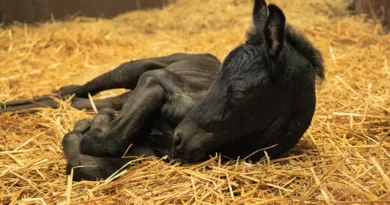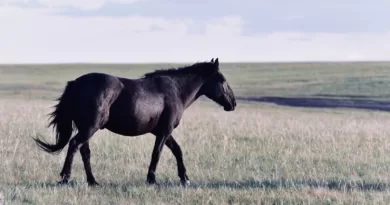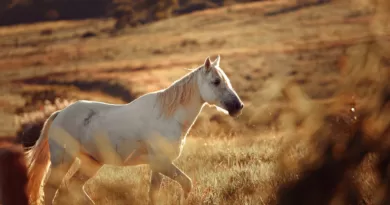How Often to Float Horses Teeth
The Importance of Regular Dental Care for Horses
One aspect of animal health that is often overlooked in horse care is the importance of regular dental care. Just like humans, horses also rely on their teeth for many essential functions such as eating and digestion. However, unlike humans, horses’ teeth continue to grow throughout their lives. This natural growth can lead to various dental issues if not properly managed.
Neglecting a horse’s dental health can have detrimental effects on their overall well-being. Misaligned teeth, sharp points, and other dental abnormalities can cause pain and discomfort while chewing, leading to reduced food intake and weight loss. It can also result in inefficient digestion, which may result in colic or other gastrointestinal problems. In severe cases, dental issues can even affect a horse’s behavior and performance, making it difficult for them to perform everyday tasks or excel in their intended disciplines.
Hence, regular dental care is crucial for horses to maintain good oral health and prevent any potential complications. By scheduling routine dental examinations and professional cleaning, horse owners can ensure that their equine companions have proper dental alignment and are free from any pain or discomfort. With proper dental care, horses can lead healthy, happy lives, enabling them to perform at their best and enjoy their daily activities.
Understanding the Natural Growth of Horse Teeth
Horses have a unique dental structure that continues to grow throughout their lives. Understanding the natural growth of horse teeth is essential for maintaining their overall dental health.
Unlike humans, who only grow a set of teeth once, horses have two sets of teeth that develop throughout their lifetime. The first set, known as deciduous teeth or “baby teeth,” start erupting at around two weeks of age. These temporary teeth eventually fall out, making way for the permanent set of teeth to grow in their place. By the time a horse reaches the age of five, it usually has a full set of permanent teeth.
As horses continue to age, their teeth undergo constant wear due to the natural grinding action that occurs while chewing on forage. This grinding helps to maintain the proper length and shape of the teeth. However, as the horse gets older, the teeth become more prone to issues such as malocclusions and sharp enamel points, which can interfere with proper chewing and cause discomfort. Therefore, regular dental examinations and interventions, such as dental floating, are crucial to ensure the horse’s teeth remain in optimal condition.
Signs and Symptoms that Indicate Dental Issues in Horses
Horses, like humans and other animals, can experience dental issues that may affect their overall health and well-being. It is important for horse owners and handlers to be aware of the signs and symptoms that may indicate dental problems in their equine companions.
One common sign of dental issues in horses is difficulty or discomfort while eating. Horses with dental problems may exhibit behaviors such as dropping feed from their mouths, chewing slowly, or even refusing to eat altogether. This can lead to weight loss, poor nutrition, and other health issues if not addressed.
Another noticeable symptom may be changes in the horse’s behavior or performance. Dental issues can cause pain and discomfort, leading to behavioral changes such as resistance to being bridled or difficulties with riding or training. If a horse that was once cooperative becomes uncharacteristically stubborn or resistant, it may be a red flag for dental problems.
In addition, physical signs such as excessive salivation, swelling on the face or jaw, and even nasal discharge may indicate underlying dental issues. These signs should not be ignored, as they can indicate more serious problems, such as infected teeth or abscesses.
If horse owners observe any of these signs or symptoms, it is important to consult with a qualified equine dentist or veterinarian who can examine the horse’s mouth and provide appropriate treatment. Regular dental care and preventive measures can help ensure the horse’s dental health and overall well-being.
Factors Affecting the Frequency of Equine Dental Care
Regular dental care is vital for the overall health and well-being of horses. However, the frequency at which a horse needs dental care can vary depending on several factors. One such factor is age. Younger horses, particularly those under the age of five, typically require more frequent dental care than older horses. This is because their teeth are still developing and may have uneven wear or sharp edges that need to be addressed. In contrast, older horses may require less frequent dental care as their teeth have already reached their mature state.
Another factor that affects the frequency of equine dental care is the horse’s diet. Horses naturally graze on fibrous vegetation, which helps to wear down their teeth evenly. However, domesticated horses often have diets that consist of processed feeds and hay, which can lack the same level of abrasiveness. This can lead to uneven tooth wear and the need for more frequent dental care. Additionally, horses that consume large amounts of grain or have dental issues that affect their chewing ability may require more frequent dental care to prevent dental problems from worsening.
Consultation with an Equine Dentist: What to Expect
During a consultation with an equine dentist, horse owners can expect a thorough examination of their horse’s oral health. The dentist will start by visually inspecting the horse’s teeth, gums, and oral cavity to identify any signs of abnormalities or dental issues. This initial assessment allows the dentist to determine the overall condition of the horse’s dental health and identify any immediate concerns that need addressing.
After the visual examination, the equine dentist may proceed to perform a more in-depth evaluation using specialized equipment. This could involve using a dental mirror to carefully examine the surfaces of the teeth or utilizing a small dental probe to check for pockets, cavities, or other abnormalities. These procedures help the dentist identify any hidden dental issues that may not be visible to the naked eye. Based on their findings, the equine dentist will then be able to provide the horse owner with a detailed assessment of the horse’s dental health and recommend any necessary treatments or follow-up care.
Dental Float: What It Involves and Why It’s Necessary
Taking care of your horse’s teeth is essential for its overall health and well-being. One particularly important aspect of equine dental care is dental floating. Dental floating involves the use of a specialized tool called a float to file down and smooth any sharp edges or points on the horse’s teeth. This procedure helps prevent discomfort, pain, and potential dental issues that can arise from uneven wear or sharp edges.
During a dental float, the equine dentist carefully examines the horse’s mouth, using a speculum to keep the mouth open and a headlight for better visibility. The dentist then uses the float to gently file down any sharp edges, addressing issues such as hooks, ramps, or overgrowth. In addition to providing immediate relief, dental floating plays an integral role in maintaining proper chewing function and promoting healthy digestion. By ensuring that your horse’s teeth are properly aligned and free from sharp edges, you can help enhance their overall well-being and performance.
Evaluating the Need for Dental Floating in Horses
Evaluating the need for dental floating in horses is an important aspect of their overall health and well-being. Dental floating is a procedure used to correct dental abnormalities and maintain proper dental hygiene in horses. However, not all horses require regular dental floating, and the decision to float their teeth should be based on a thorough evaluation by a qualified equine dentist.
When evaluating the need for dental floating, several factors should be considered. First and foremost, the age of the horse plays a significant role. Younger horses, especially those under five years old, may require more frequent dental floating as their teeth are still erupting and may have sharp points. Older horses, on the other hand, may have worn teeth that need less frequent floating.
Another factor to consider is the horse’s eating habits and behavior. If you notice any signs of discomfort while eating, such as dropping feed or struggling to chew, it may indicate the need for dental floating. Similarly, if your horse exhibits behavioral changes, such as resisting the bit or tossing its head while ridden, dental issues could be the underlying cause.
In conclusion, evaluating the need for dental floating in horses requires careful consideration of various factors, including age, eating habits, and behavior. Regular dental examinations by a qualified equine dentist are crucial to identifying any dental abnormalities and determining whether dental floating is necessary. By staying proactive in maintaining your horse’s dental health, you can ensure their overall well-being and longevity.
• Age of the horse: Younger horses may require more frequent dental floating as their teeth are still erupting and may have sharp points. Older horses may have worn teeth that need less frequent floating.
• Eating habits and behavior: Signs of discomfort while eating, such as dropping feed or struggling to chew, may indicate the need for dental floating. Behavioral changes like resisting the bit or tossing its head while ridden could also be a result of dental issues.
• Regular dental examinations by a qualified equine dentist are crucial in identifying any dental abnormalities and determining whether dental floating is necessary.
• By maintaining your horse’s dental health proactively, you can ensure their overall well-being and longevity.
Establishing a Routine Dental Maintenance Schedule for Horses
Regular dental care is crucial for maintaining the overall health and well-being of horses. Establishing a routine dental maintenance schedule ensures that their teeth are properly examined and any potential issues are addressed in a timely manner. By regularly scheduling dental check-ups, horse owners can prevent the development of serious dental problems and keep their equine companions comfortable and pain-free.
The frequency of dental care for horses depends on various factors, including age, diet, and dental health history. Typically, it is recommended to have a veterinary dentist examine a horse’s teeth at least once a year. However, some horses may require more frequent check-ups, especially those with specific dental issues or older horses who may have more dental wear and tear. Working closely with an equine dentist will help determine the appropriate dental maintenance schedule for each individual horse, ensuring their dental health needs are met effectively.
Common Misconceptions About Floating Horse Teeth
One common misconception about floating horse teeth is that it is only necessary for older horses. While it is true that dental issues become more prevalent as horses age, dental floating is important for horses of all ages. Younger horses may experience issues such as retained baby teeth or improper eruption, which can lead to discomfort and create dental problems later in life. By addressing these issues early on through proper dental care, horses can have a healthier mouth and avoid potential complications down the road.
Another misconception is that floating horse teeth is a painful and traumatic procedure. However, with modern sedation and advanced dental tools, dental floating is generally a well-tolerated procedure for horses. Equine dentists are trained to perform the procedure safely and effectively, ensuring minimal discomfort for the horse. It is important to remember that regular dental care, including floating, actually helps prevent pain and discomfort by correcting misalignments, sharp points, and other issues that can impact a horse’s ability to chew and digest food properly.
Tips for Maintaining Your Horse’s Dental Health Between Floats
Regular dental care is essential for maintaining your horse’s overall health and well-being. While dental floats can address specific issues and maintain proper tooth alignment, there are several steps you can take to ensure your horse’s dental health between floats.
Firstly, it is important to provide your horse with a diet that supports dental health. This includes offering a balanced diet with ample fresh forage and limiting the amount of sugary and processed feeds. The act of chewing fibrous forage assists in natural tooth wear and helps prevent the development of sharp points or edges.
In addition to a healthy diet, regular dental examinations are crucial. Inspecting your horse’s teeth for any signs of abnormalities, such as excessive wear, sharp edges, or loose teeth, can allow for prompt intervention. Regular dental checks can also help identify any growth abnormalities or malocclusions, which could lead to more serious dental issues if left untreated.
Implementing proper oral hygiene practices is another important aspect of maintaining your horse’s dental health. This includes practicing good dental hygiene by brushing your horse’s teeth, if they tolerate it, or providing dental-friendly treats. Additionally, regular dental checks should be accompanied by a routine of oral rinsing using a veterinarian-approved solution to promote a healthy oral environment.
By focusing on these key preventive measures, you can help maintain your horse’s dental health between dental floats. Regular examinations, a proper diet, and good oral hygiene practices will promote optimal oral health and contribute to your horse’s overall well-being.
Why is regular dental care important for horses?
Regular dental care is important for horses because it helps maintain their overall health and well-being. Dental issues can cause pain, discomfort, and difficulty in eating, which can lead to poor nutrition and weight loss. Regular dental care also helps prevent the development of more serious dental problems in the future.
How do horse teeth naturally grow?
Horse teeth naturally grow continuously throughout their lifetime. They have a unique pattern of eruption and wear, where new teeth erupt from the gum line as the old teeth wear down through chewing. This natural growth helps maintain proper dental alignment and efficient chewing.
What are the signs and symptoms that indicate dental issues in horses?
Signs and symptoms that indicate dental issues in horses include difficulty chewing, dropping food while eating, weight loss, bad breath, excessive drooling, head tossing, resistance to the bit, and swelling or discharge around the face or jaw.
What factors affect the frequency of equine dental care?
The frequency of equine dental care can be affected by various factors, including the age of the horse, their diet, their dental conformation, any previous dental issues, and their individual chewing patterns. Younger horses and those with dental abnormalities may require more frequent dental care.
What should I expect during a consultation with an equine dentist?
During a consultation with an equine dentist, you can expect a thorough examination of your horse’s mouth, including checking for any signs of dental issues. The dentist may use specialized tools to assess the teeth, gums, and jaw. They will discuss their findings with you and recommend any necessary treatments or further actions.
What does dental float involve and why is it necessary?
Dental float is a procedure performed by an equine dentist to file or smooth out sharp edges, hooks, or irregularities on a horse’s teeth. It is necessary to ensure proper chewing and prevent discomfort or injuries to the horse’s mouth. The procedure helps maintain a balanced dental occlusion and promotes better overall dental health.
How can I evaluate the need for dental floating in my horse?
You can evaluate the need for dental floating in your horse by observing any signs of dental issues mentioned earlier, consulting with an equine dentist, and scheduling regular dental check-ups. The dentist will be able to determine if your horse requires dental floating based on their examination and assessment.
How can I establish a routine dental maintenance schedule for my horse?
To establish a routine dental maintenance schedule for your horse, consult with an equine dentist who can recommend an appropriate interval between dental floats based on your horse’s individual needs. Regular dental check-ups should also be scheduled to monitor any changes or emerging dental issues.
What are some common misconceptions about floating horse teeth?
Some common misconceptions about floating horse teeth include the belief that horses do not need regular dental care, that their teeth will naturally wear down without intervention, and that dental floating is a painful or unnecessary procedure. It is important to understand that regular dental care is essential for maintaining a horse’s dental health.
What are some tips for maintaining my horse’s dental health between floats?
Some tips for maintaining your horse’s dental health between floats include providing a balanced and appropriate diet, ensuring access to clean and fresh water, using appropriate dental-friendly supplements, regularly inspecting your horse’s mouth for any abnormalities or discomfort, and scheduling regular dental check-ups with an equine dentist.




